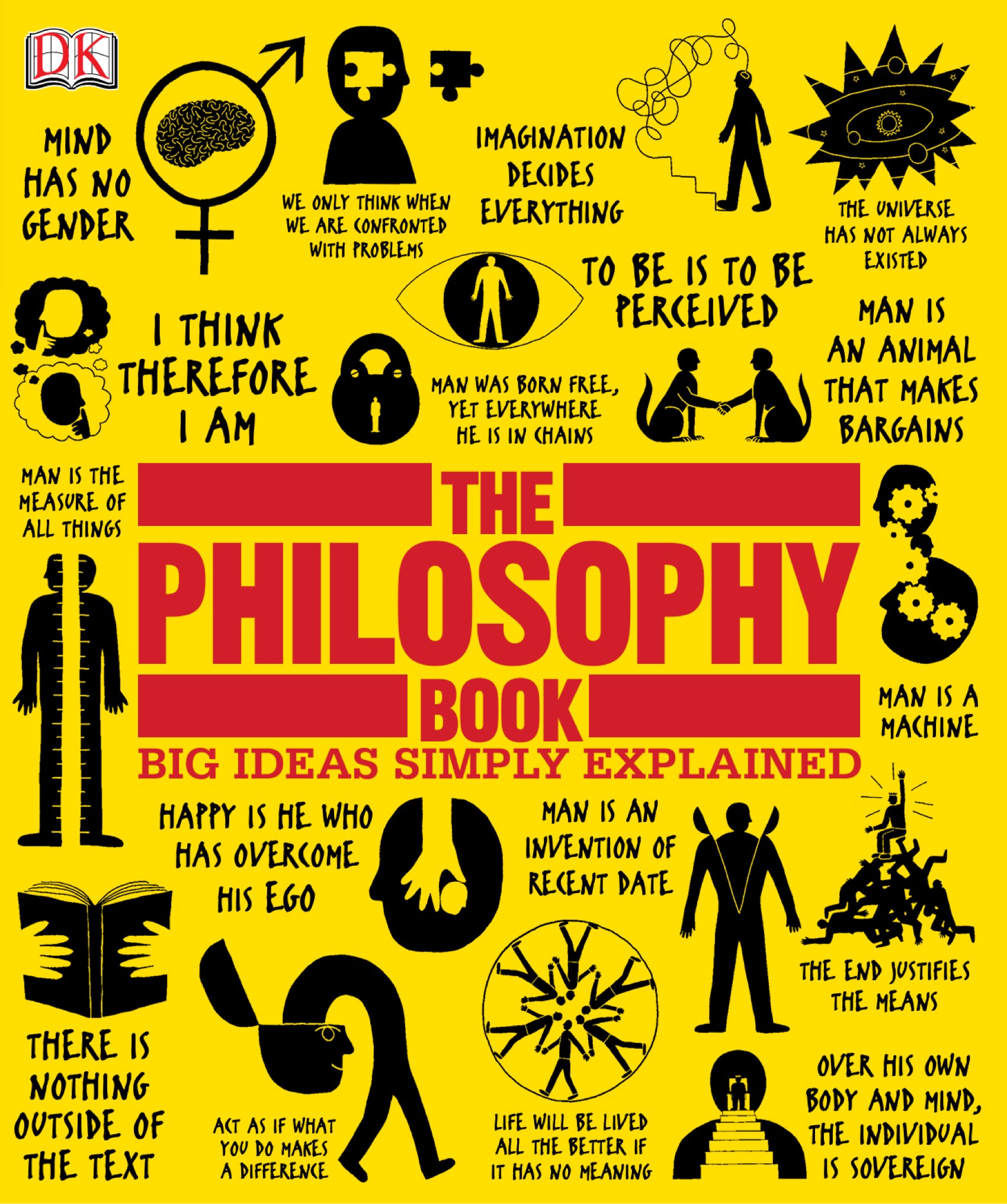DK THE PHILOSOPHY BOOK
The Philosophy Book: Big Ideas Simply Explained provides a comprehensive overview of the history of philosophy, presenting key concepts and ideas from influential thinkers across different eras. It is structured in a way that breaks down complex philosophical thoughts into accessible explanations.
Summary of The Philosophy Book
This book covers various philosophical traditions and schools of thought, spanning from ancient times to contemporary discussions. It is divided into different historical periods, exploring key thinkers and their contributions:
1. The Ancient World (700 BCE–250 CE)
• Early philosophy focused on explaining existence and the natural world.
• Thinkers like Thales of Miletus proposed that everything is made of water, while Heraclitus believed that change is the fundamental nature of reality.
• Plato introduced the concept of ideal forms, and Aristotle emphasized empirical observation.
• Eastern philosophy also developed during this period, with Confucius focusing on ethics and social harmony, and Siddhartha Gautama (Buddha) promoting self-overcoming to attain enlightenment.
2. The Medieval World (250–1500)
• Medieval philosophy was heavily influenced by religious thought.
• Thinkers like St. Augustine integrated Christian theology with Platonic philosophy.
• Thomas Aquinas later synthesized Aristotle’s ideas with Christian doctrine.
• Islamic and Jewish scholars, such as Averroes and Moses Maimonides, contributed to the preservation and expansion of ancient Greek philosophy.
3. The Renaissance and the Age of Reason (1500–1750)
• A period of renewed interest in classical ideas, emphasizing reason and individualism.
• Niccolò Machiavelli explored political philosophy, while Francis Bacon developed the scientific method.
• René Descartes introduced rationalist thought with “I think, therefore I am,” and John Locke laid the foundation for empiricism.
4. The Age of Revolution (1750–1900)
• Philosophy became more focused on political and economic change.
• Jean-Jacques Rousseau emphasized individual freedom, and Karl Marx developed his theory of class struggle.
• Immanuel Kant sought to bridge the gap between rationalism and empiricism, while Nietzsche challenged traditional morality.
5. The Modern World (1900–1950)
• This era saw the rise of existentialism, pragmatism, and linguistic philosophy.
• Ludwig Wittgenstein examined the limits of language, while Jean-Paul Sartre introduced existentialist ideas such as “existence precedes essence.”
• Thinkers like Bertrand Russell contributed to logical analysis and analytic philosophy.
6. Contemporary Philosophy (1950–Present)
• Postmodernism and deconstructionism emerged, challenging objective truth.
• Michel Foucault and Jacques Derrida questioned power structures and language.
• John Rawls focused on justice, while Peter Singer promoted ethics based on animal rights and utilitarianism.
Themes and Takeaways
• Philosophy seeks to answer fundamental questions about existence, knowledge, morality, and society.
• Throughout history, different schools of thought have emerged, often reacting to or building upon previous ideas.
• Eastern and Western philosophies developed distinct yet sometimes overlapping perspectives on life, ethics, and reality.
• Contemporary philosophy continues to evolve, addressing issues like artificial intelligence, ethics, and postmodern critique.
